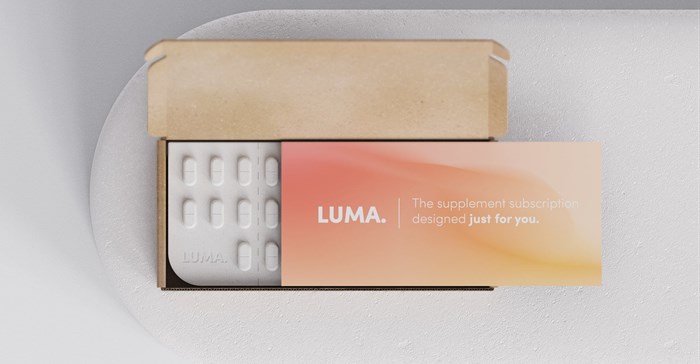Industrial design and innovation consultancy, Morrama has created Luma, a concept for a management platform that uses AI and 3D printing to tailor uniquely formulated compounds to a woman's needs as she goes through menopause.

Source: Supplied.
The design company – which is behind the Elvie Catch breast milk collector and its own prenatal care concept range designed to better support parents through pregnancy - is aiming to solve the next female health issue lacking medical awareness: the menopause, experienced by half of the population and potentially affecting 100% of it.
Taking inspiration from fertility tracking apps and 3D print technology, Luma is an app that uses smartwatch and sensor data combined with manual inputs to build up a user’s profile as they go through menopause. Machine learning takes data including temperature, energy levels, stress and sleep to prompt questions to capture cognitive and emotional wellbeing.
Combined, this information is used to automatically tailor the balance of ingredients in the ‘magic compound’ that is 3D printed into pills and shipped out monthly.
Giving women their power back
“As part of our newly launched Morrama Lab, we’ve been looking into the health and wellness of typically overlooked markets,” Morrama founder and creative director, Jo Barnard said. “With the recent 'menopause leave' trial rejected by ministers in England, it’s clear the women going through this experience have been one of the most neglected markets. Our Luma concept aims to support the wellbeing of those women and give them their power back.”
There is a growing acceptance of alternative medicine; diet, herbal remedies, and meditation in treatment. The unique compound would include a combination of Black Cohosh for the management of hot flashes, Lion’s Mane to reduce brain fog and Ginseng for increased libido. There would also be the option (where legal) of THC which mimics aspects of anandamide, an endocannabinoid that helps regulate body temperature.
3D printing enables the ingredients to be tailored not just to the user, but to the individual supplement batch.
Barnard added: “As with fertility or nutrition, every woman’s menopause experience is different. Luma uses machine learning to build up an understanding of each user's symptoms and tailor the formula accordingly, and 3D printing them into one simple ‘magic compound’ makes the ingredients easy to integrate into a daily routine."
Delivered in a letterbox friendly shipper, the idea behind the pills is for them to be packed in sustainable blister packs or, for customers who choose to have a refillable system, a tear-open refill pouch. With the blister packs made from dry-moulded renewable and biodegradable cellulose fibre, Luma packaging would be 100% plastic-free.
Morrama envisions the concept becoming a reality under an agile private start-up rather than a giant pharmaceutical company as 3D printing allows you to start with a small group of consumers.

































